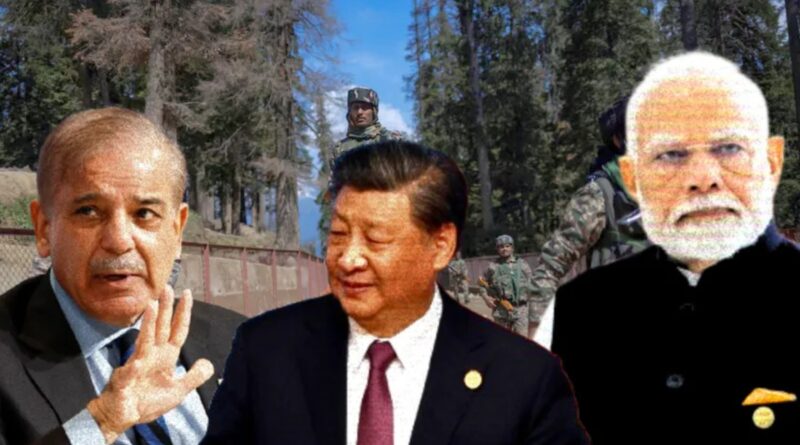China Urges Impartial Probe After Pahalgam Attack, Seeks India-Pak Restraint
China Calls for Calm After Pahalgam Attack: What It Means for India-Pakistan Relations
On April 27, a terrifying attack struck a tourist bus in Pahalgam, a popular travel destination in Jammu and Kashmir. The tragic event left several people injured and raised concerns not just within India, but across the region.
What followed was a call for calm—this time, from China. The Chinese government urged both India and Pakistan to stay restrained and avoid actions that could worsen the situation. More importantly, China pushed for an impartial investigation into the attack.
So, what does this mean for India, Pakistan, and their delicate relationship? Let’s break it down.
What Happened in Pahalgam?
A group of pilgrims were returning from a religious site when their bus came under fire. It crashed into a deep gorge as the driver lost control. Over 30 people were on that bus. Many were injured. For the victims and their families, it was a nightmare.
Why Does This Matter So Much?
Pahalgam is considered a safe, scenic spot in Kashmir. When such places experience violence, it not only shakes public confidence but also creates doubts about regional peace.
This incident is already fueling political tension—especially between India and Pakistan, who have had a long and complicated history over Kashmir.
China Speaks Up
While India grieves and investigates, China made a public statement. Here’s what they said:
China’s statement wasn’t just about sympathy. It reflected concerns about the safety and stability of the entire region.
Why Is China Involved?
You may wonder—why would China get involved in something between India and Pakistan?
There are a few reasons:
What an Impartial Investigation Means
India has already begun its own investigation. However, the term “impartial” used by China could be interpreted differently by different players.
Questions Arise:
From India’s perspective, national security and sovereignty are key. Critics argue that internationalizing such events could be seen as interference. On the other hand, some believe global input could add credibility and reduce tensions.
India and Pakistan: A History of Tension
Let’s not forget—India and Pakistan have been locked in conflict over Kashmir since 1947. While there have been peaceful phases, violence often reopens old wounds.
Every time there’s an attack in Kashmir, suspicions rise. Politicians in both countries are quick to respond, sometimes sharply. This cycle makes it difficult to build trust.
What’s the Risk Right Now?
There are several dangers:
With elections, diplomacy, and media adding more fuel, one event can shake the balance.
What Should Happen Next?
Many people are now asking—what’s the responsible path forward?
Here are a few ideas:
1. Ensure a Transparent Investigation
India’s investigation must be quick and clear. Sharing findings with the public—and possibly with international observers—could build more trust worldwide.
2. Avoid Blame Games
Jumping to conclusions can do more harm than good. Dialogue, even if limited, helps tone things down.
3. Strengthen Regional Cooperation
Counter-terrorism policies affect all countries in the region. Cooperation across borders helps prevent future incidents.
Role of International Players
China’s role is worth watching. By asking for peace and fairness, China puts itself in a position of influence.
But the West is also watching closely:
If China is positioning itself as a “peace broker,” others may follow or challenge that role.
Can You Trust International Mediation?
This is a tough question.
International mediation can help. But it also depends on political will. Do both India and Pakistan want neutral parties involved? Or will national pride block those options?
There’s no easy answer here. It comes down to whether both nations are willing to pause, listen, and shift their approach.
What This Means for Everyday People
Let’s talk about how this impacts you—an ordinary citizen.
In short, peace is more than a political slogan—it’s what allows communities to thrive.
Time to Change the Script?
Many in South Asia are tired of repeating history. Young people especially want jobs, education, and opportunity—not fear and conflict.
So ask yourself:
As individuals, we may not write national policies, but we do shape the culture around us—by choosing peace in thought, speech, and action.
Final Thoughts
The Pahalgam attack was tragic. China’s response reminds us that regional peace needs more than words—it needs real effort from everyone involved.
Both India and Pakistan have a responsibility to manage this moment carefully. And international voices, like China’s, might just offer a chance to pause, reflect, and choose a smarter path forward.
We’ll be watching what happens next. So stay informed—and stay hopeful.









